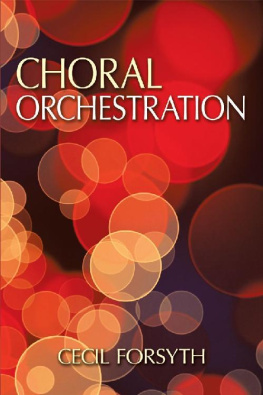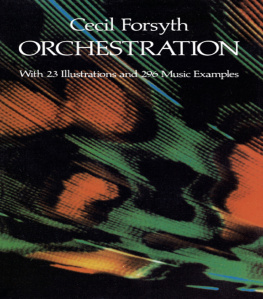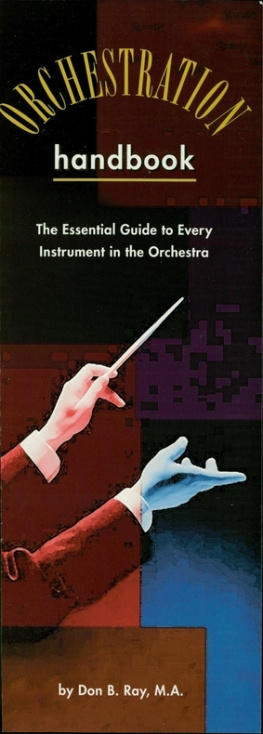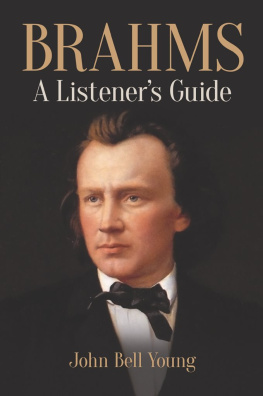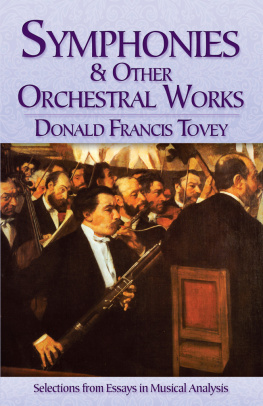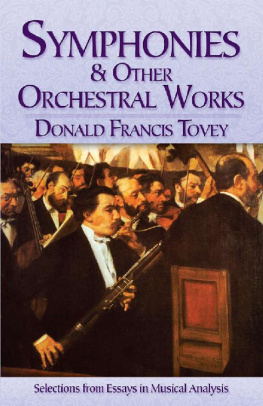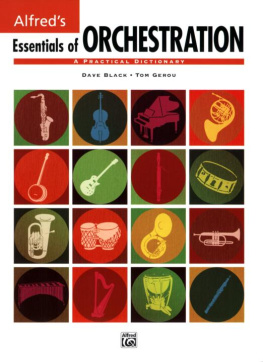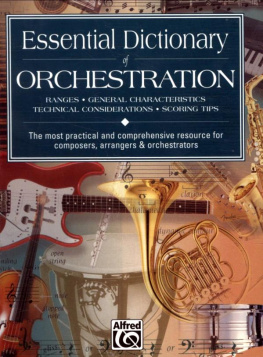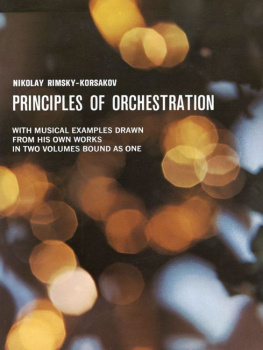CHORAL ORCHESTRATION
CECIL FORSYTH
DOVER PUBLICATIONS, INC.
MINEOLA, NEW YORK
To
A. M. G.
WITH PLEASANT RECOLLECTIONS
Bibliographical Note
This Dover edition, first published in 2013, is an unabridged republication of the work originally published by the H. W. Gray Co., Ltd., New York, in 1920.
Library of Congress Cataloging-in-Publication Data
Forsyth, Cecil, 18701941.
Choral orchestration / Cecil Forsyth.
pages cm
This Dover edition, first published in 2013, is an unabridged republication of the work originally published by the H. W. Gray Co., Ltd., New York, in 1920.
A complete copy of Walter Henry Halls Festival Te Deum composed for the peace celebrations and first performed at Columbia University, New York, May 5, 1919, is printed at the end of the volume, and the work dissected, six bars at a time, with the original copy for organ and voices at the head of each left-hand page, and its orchestration on the page opposite.
eISBN 13: 978-0-486-78258-4
1. Instrumentation and orchestration. 2. Choral musicAnalysis, appreciation. 3. Hall, Walter Henry, 18621935. Festival te deum. I. Hall, Walter Henry, 18621935. Festival te deum. II. Title.
MT70.5.F67 2013
784.221374dc23
2013017588
Manufactured in the United States by Courier Corporation
49372501 2013
www.doverpublications.com
Contents
Preface
THE number of anthems and other choral works written each year by English and American composers is enormous. Most of these are rarely performed with orchestral accompaniment. But the proportion is increasing; and it is most desirable, in the interests of musical culture, that this increase should continue, however small the orchestral force employed may be.
Organists constantly inquire for a short handy book which will give them a technical grounding in the scoring of their compositions. And it is for their use that this slim volume has been written. It makes no pretence of taking them into the high sun-smitten pastures of modern orchestration. But it does claim to lead them to the foothills there-under, and to deal practically with the routine problems which face them on every page of their compositions.
General principles have by no means been avoidedindeed, they are the foundation of the book. But they are shown mainly in their application to every-day orchestral necessities. When once these applications have been grasped, there is nothing to prevent their extension into the more elaborate fields of instrumentation, according to the musical ability of the individual composer. A foundation-technique is the thing to aim at, a technique that gives one ease and certainty of orchestral method.
The plan of the volume is, I think, new. It amounts to this: that the reader is presented with a complete composition, and is then taken through it bar by bar, almost as if in conversation with a friendly critic. First, the musical difficulties of the work are considered in large blocks, as it were; the orchestral possibilities of each passage are then balanced one against the other; then, when a decision has been made, the details of the orchestral execution are taken up and explained.
In this way it is hoped that organist-composers may be encouraged to a better study of the subject of orchestration, not as a platonic text-book affair that is wholly outside their own sphere of action, but as a practical part of their profession. An organist who can give even one performance a year of a work written and orchestrated by himself may find that he is sowing seeds that will produce a crop of musical fruitfulness far beyond his anticipations. In small towns, remote from the great centres of national activity, he really owes this to the community in which he lives. And it is a species of healthy provincialism to which every lover of art should accord his heartiest support.
These ideals call for much musical planning and much quiet preparation. Let us then remember the answer that Aristotle is said to have made when he was asked where the Muses dwelt: In the souls of those that love work.
CECIL FORSYTH.
Choral Orchestration

Choral accompaniment is not the main business of an orchestra. It is a secondary and occasional task, usually undertaken by the players without much pleasure, and often carried out in a way that does not bring any great joy to the audience.
Pitted against the chorus each player has an uncomfortable sense of loss in his own personal value. His daily experience has given him an unerring feeling for current orchestral dynamics, and in time this scale becomes almost a second nature to him. He regards it much as a philosopher regards the law of gravitation; andit must be confessedhe often claims an aristocratic proprietorship in the law and its workings. Then comes the choral performance, at which the big democratic planet Vox Populi swims into his ken. He finds that what he has been considering the immutable has become the transitory. Vast readjustments are necessary: but for these there is neither time nor encouragement. Hence comes much rough and careless orchestral playing, and a general effect of muddled mezzofortethe worst type of orchestral criminality.
Meanwhile, the man in the audience holds on to his chair and wonders why all this unmusical wickedness should be visited on him only at a choral performance. He does not complainAnglo-Saxon audiences never do, except by the practical method of staying away from the next concertbut he registers a mental crescendo of irritation at all the fuss and pother, at being forced to hear the things which he does not wish to hear, and at having to leave unheard the things which he does wish to hear. Finally he ends by saying that choral concerts are a blatant nuisance. And, when he is in that frame of mind, it is the merest chance whether the next wind will blow him into a quartet performance or into the movies.
But, it may be asked, what is the composer doing all this time. Surely it is his business to foresee and overcome these difficulties. Being a choral composer he has limitless wealth (from royalties), and therefore unlimited leisure. Why is he such an incompetent bungler?
Well, the fact is that, like the rest of the world, he is doing his best. But he labours under certain disadvantages. To begin with, as a student he is not likely to hear much about the proper presentation of choral music. That is perhaps unavoidable. His youthful days are filled with aspirations and counterpoint exercises. Then, if he turns to books, he is likely to find himself somewhat undernourished mentally. In general works on orchestration space cannot be spared for the adequate illustration of this particular topic. From them he will probably learn no more than this: that choral works should be scored thickly and solidly; but that, as choruses vary in number from fifty to five thousand, any examination of principles or setting-forth of rules is so much waste of time. The consequence is that, even if he has had two or three choral works performed, he will probably rely on a miserable rule of thumb which has no relation to the true analytic that precedes all useful artistic attainment. And what is more, he will possibly go on to say that there is no method for accompanying choral music; that it is nothing but accident and fake from beginning to end; and that therefore the best way is to put down as many notes as possible and leave the result to chance. Q. E. D.
All this is, of course, the merest nonsense. The factors in the problem are just as easily ascertainable as the factors in any other musical problem. But they are not to be found, nor is the problem to be solved, by regarding the two elements, the choral and the orchestral, as violently opposed to each other and incapable of artistic fusion. If one has the brains and the inner ear, one can start from the idea of simple writing in one coloursay stringsand progress to the more complex idea of strings plus two bassoons, or of strings plus four horns. And from there one can proceed upwards through all the tinted winding paths of musical fancy till one arrives at the summit, the mountain-view of the full orchestra, whether used as a complex form of contrapuntal speech or as a single massive harmonic utterance.

